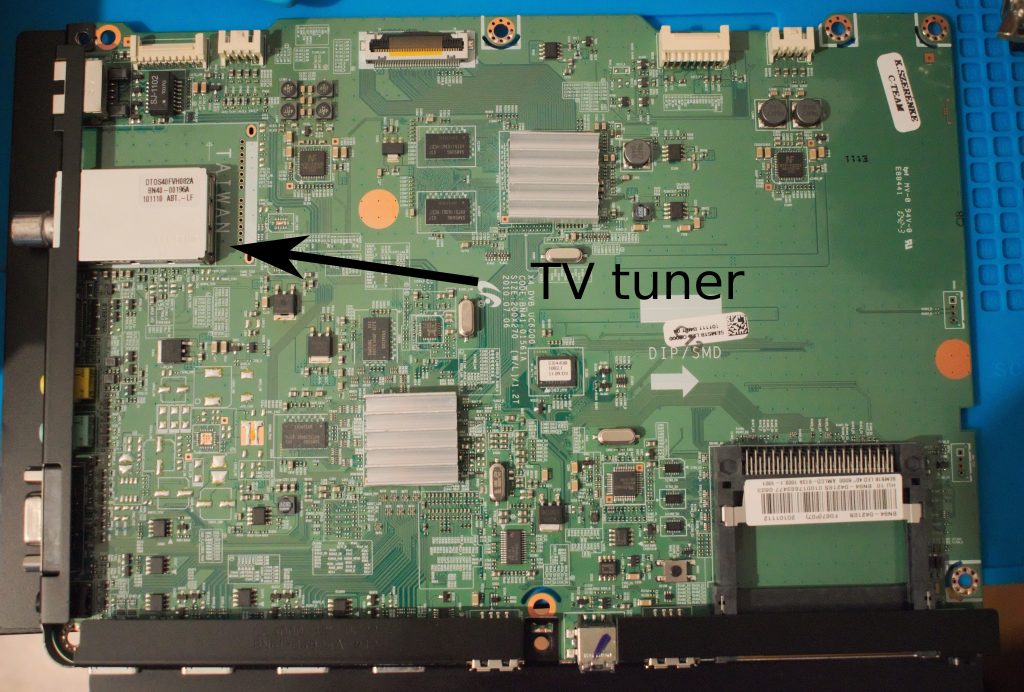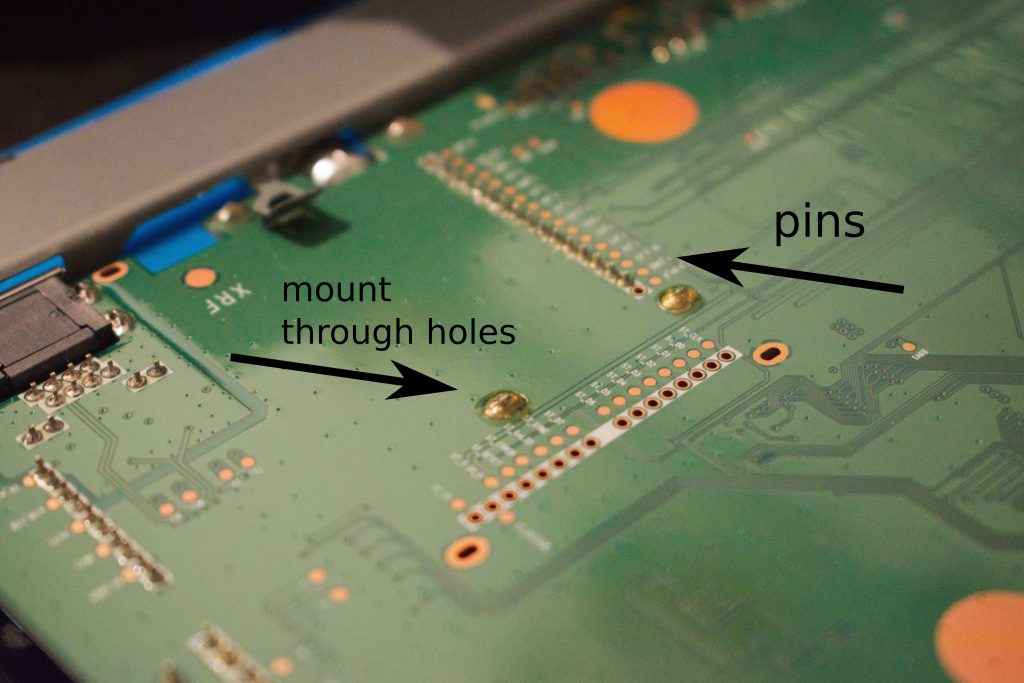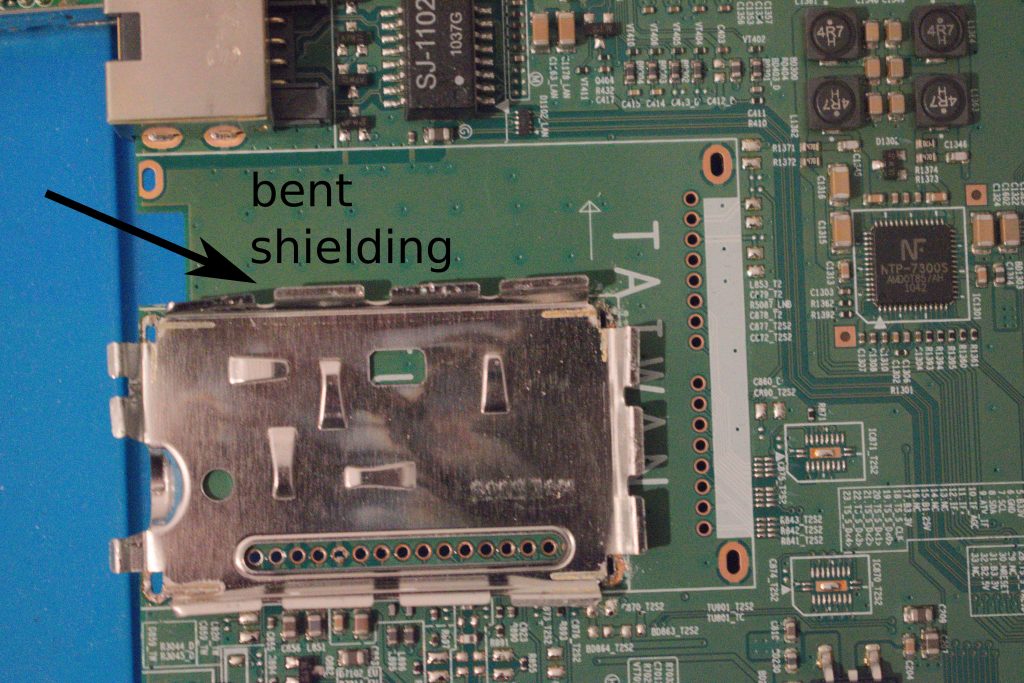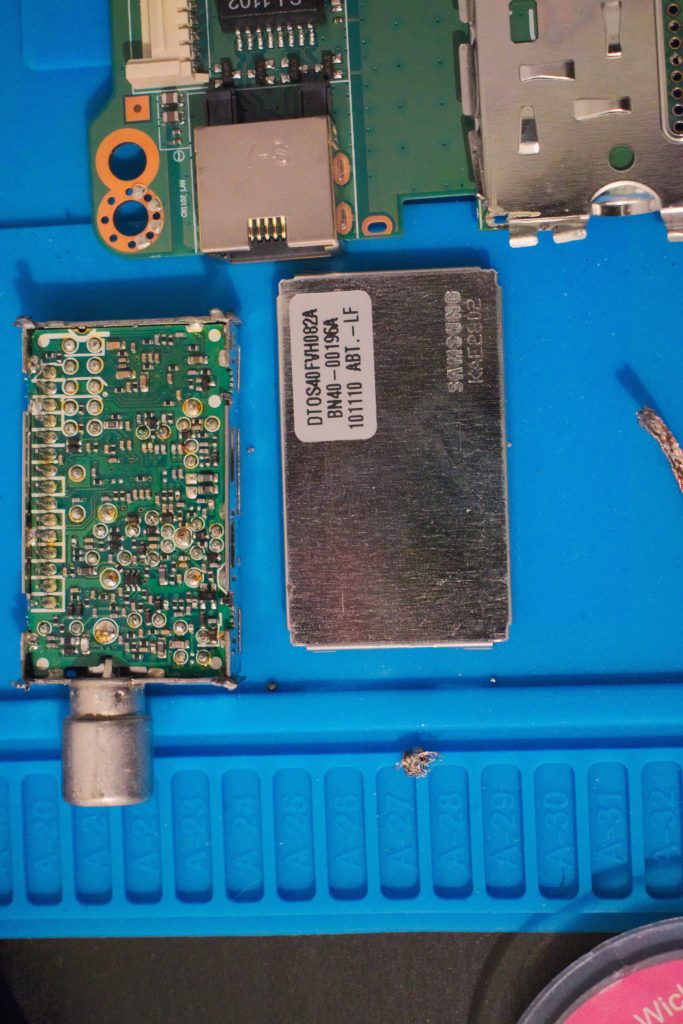Why (some) Austrians break their TVs?
December 31st, 2020 | by Saren Tasciyan | posted in Electronics, Guide, Hacking, Society, Technology

Now that I got your attention with a clickbait title, let’s dive into a topic full of ancient laws, politics unable to adapt the pace of technology and the funny yet effective solution people found.
Background
In Austria if you own a broadcast receiving device (TV or radio), you must pay a fee, which is called GIS fee (GIS Gebühr). GIS stands for Gebühren Info Service GmbH, which means something like Fees Info Service Limited. This is a subsidiary for ORF (Österreichischer Rundfunk or Austrian Broadcasting Corporation). This is the national public service broadcaster. Unlike in some other countries national public service broadcaster (ORF) is quite popular and respected. At least it isn’t as biased as in many other countries with their news reporting regarding the government and the state. This is of course good! An “independent” quality news service is a must for a healthy democracy. The problem starts with the funding scheme of this service. Unlike other models, where the budgets comes directly from the state, ORF is financed via the GIS fees, which are collected by this company. So, if you own a TV or radio, you must contact the GIS GmbH and pay them monthly. The amount of the fee varies between each state but as an example for Vienna it is 26,33€ for TV and radio and 7,33€ for radio only per month. This is somewhat a lot considering a basic cell phone package (free minutes/SMS/internet) costs ~10€/month or cable internet around 25€/month.
GIS dilemma
You may be surprised but main problem from the GIS side is to enforce the law, which is granted to GIS to collect the fees. People sometimes buy a TV or radio but don’t report it. However, GIS doesn’t give up there. GIS sends a letter to warn and scare residents, who aren’t registered to have a TV or radio yet. What are the chances that a household doesn’t have any of those? They do that also by checking registers of residency, for which they have access to. This letter contains a form of declaration. Residents can declare TV+radio, radio only or none and details about the payments. The letter also warns about a ~2000€ penalty in case of a non-declared device. But it doesn’t end there. Household, which declare only radio or none may receive unannounced visits by the GIS. Here, it gets tricky. Normally, they aren’t allowed to come in, unless the residents invite them. But it seems like many people invite them and get caught. Probably, they think that they have right to or get confused in the moment. I heard stories from friends that they even put a foot inside to prevent the door being closed or try to enter as if it is perfectly normal. This sounds like a psychological trick. But take is with a grain of salt. Often, they don’t fine 2000€ but they ask for a few months of fees and a subscription for future fees. They may have a right to check the house though, if they have a suspicion of the existence of a TV or radio. This is a vague excuse though. What can be a legitimate excuse? Sure, if you can see from outside a TV or hear a radio, but wait… 20 years ago maybe. Nowadays, can you differentiate between TV/radio/PC by the sound reliably? Even the content doesn’t give away as many TV and radio channels have free web streaming. Oh, I forgot to mention! Computers and cell phones aren’t included into this law, unless they can receive TV and radio signals. This can be with a TV card or a radio card. Those folks need to pay. There was even a case, where the court decided to exclude computers with an internet connection. Overall, GIS relies on fear (of a ~2000€ fine) to enforce the law. GIS motivates their controllers with a premium of 20€.
When markets and laws can’t adapt to changing technology and consumer habits
I personally don’t watch TV. I prefer to spend my time on the internet. There are more and more people, who do the same. Here it gets interesting. Beside being able to receive broadcasting signals, TVs are pretty good displays. So much so that they are very economic for their size. Furthermore, nowadays they are able to connect to internet, play media files over network shares, act as fancy displays of pictures (like a giant electronic photo album). They even pretend to be a fireplace. And the elephants on the web: streaming services. TV is dying. It has little advantage over the internet. You may think that the same was said to radio. Well, it isn’t the same thing. TV wasn’t a purely better alternative to radio. Radio has advantages over TV. Radio doesn’t require your visual attention. In contrast, internet has all the advantages over TV and radio with negligible disadvantages. It is already happening. New generations are so much busier on their phones (not even laptops!) that TV has lost all the interest. However, TV as a device is still attractive as a nice display for all those movies and series people are watching over those streaming services. I think, the title makes sense to you now. People simply don’t want to pay for a TV fee, if they don’t watch TV broadcast. Additionally, they can’t buy something that can fill that gap. Last time I checked (~5 years ago) there wasn’t any TV without the ability to receive broadcast signal. There was some demand from the consumer side already. I even overheard my colleague from my institute talking about his frustration about exactly this issue.
“Desperate times call for desperate measures”
This whole situation doesn’t stop people, who wants to abide the law but don’t want to pay for something, they don’t need. Solution is to break the TV. Well… not totally but according to law, the device need to be able to receive broadcasting signals, right? According to previous cases, unplugging the antenna isn’t enough. It seems like simple cheap modifications aren’t excluded from the law. However, TVs have a component called TV tuner, which can be removed from the board. This is the component, which is responsible to receive and decode broadcasting signals. If you remove that component, (theoretically) everything else (HDMI, internet, etc.) should continue to work in your TV. Some models may completely stop working though, even though there is no technical reason for it. A friend of mine asked me to do this to make his TV GIS free. Here is how it looks (WARNING: modifying electronics can be dangerous and can cause A LOT OF HARM! This is purely for educational purposes.).

Often the TV tuner is shielded and directly exposing the input to outside. This is the part I removed next. Let’s look at the other side.

The components is held with mount hole solder and pins. Additionally, metal casing is also holding the component. The latter one can be bent away to free the sides. The pins and mount holes need to be desoldered. I suggest a heated desoldering pump. This part is challenging. There is always some solder left. If you manage, you can remove the tuner and the empty slot looks like this.


This worked like a charm. TV wasn’t able to receive any broadcasting signal but all other functions were fine.
While writing this article I checked again if there are any products without a tuner. Finally, there are some:
If you can’t do it yourself, there is even a commercial service for this.

Summary
GIS fee is for a good purpose. To deliver independent state media to the citizens/residents. Good journalism costs money and money means control. Commercial broadcasters may feel pressure from their customers. ORF is a great news broadcaster. However, changing consumers habits and technology pose a threat to their revenue model. Again and again we see laws lagging behind technology. I think that with law makers and juridical system there is a lack of understanding these trends. Markets are often too slow to adapt. The problem affects too few people to get attention of large vendors don’t care. I personally argue for a guaranteed budget by the federal state, which solves this problem all together.



